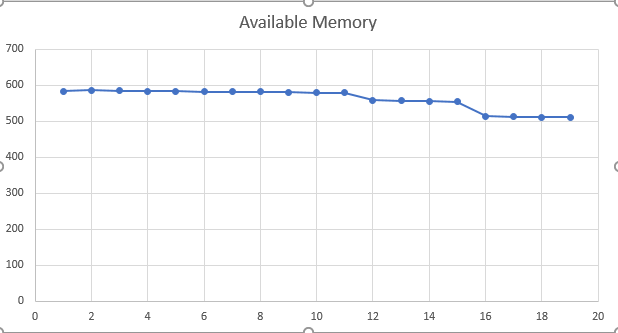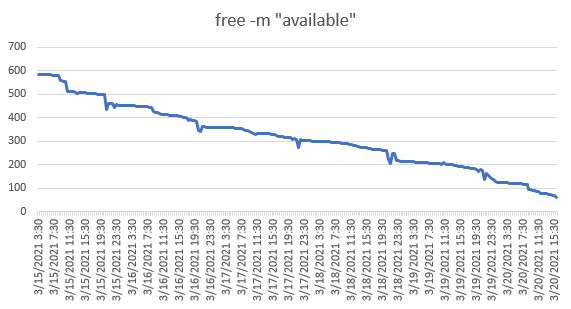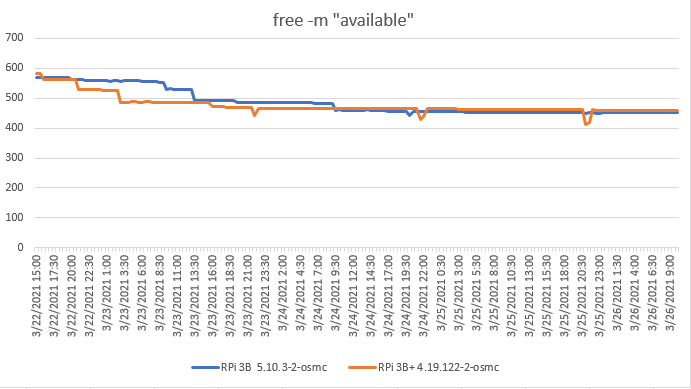Well, the Pi is now – magically, I guess – reconnecting wirelessly after rebooting with the new SD card and fresh installation. Further good news is that memory leakage is apparently much less, perhaps close enough to zero, with the fresh installation. Maybe there’s nothing wrong with the driver, and the problem was some kind of corruption in the previous installation?
I’ll note that I’ve configured my SMB shares and installed iperf3 and crontab.
There are a couple curiosities, at least to me, in the most recent data from free -m and meminfo. To illustrate, here is a graph of available memory for the the period 0330 and 1230 today:

Note the relatively sharp decline in available memory at periods 11 and 15 of approximately 20MB and 40MB respectively. These occurred at 0830 and 1030 this morning. To try to understand what was driving these drops in available memory, I compared meminfo at 0830 and 0900 and at 1030 and 1100. Three entries stood out in these files as increasing by about 40MB between 1030 and 1100 this morning: Active(anon), AnonPages, and Committed_AS. Between 0830 and 0900, two entries stood out as increasing by about 20MB: Active(anon) and AnonPages. For this period, Committed_AS increased by only just over 5MB.
In glancing over the data over a broader time range, this appears to be the typical pattern with the new SD card – relatively long periods of almost constant available memory punctuated by relatively short periods where availability decreases. Some of these decreases get partially reclaimed later on, some do not.
The above observations may be perfectly normal given what the system was doing at these times; I don’t know enough to be able to tell. I know we weren’t watching anything at the highlighed times, but, of course, the Pi is never really “idle”, either; e.g., it polls the server every few minutes and appears from the logs to be doing lots of other things as well.
I think my next step might be to take out the nightly reboot and see how long it lasts before it runs out of memory.
As always, I appreciate your thoughts, ideas, and support. Thank you.




